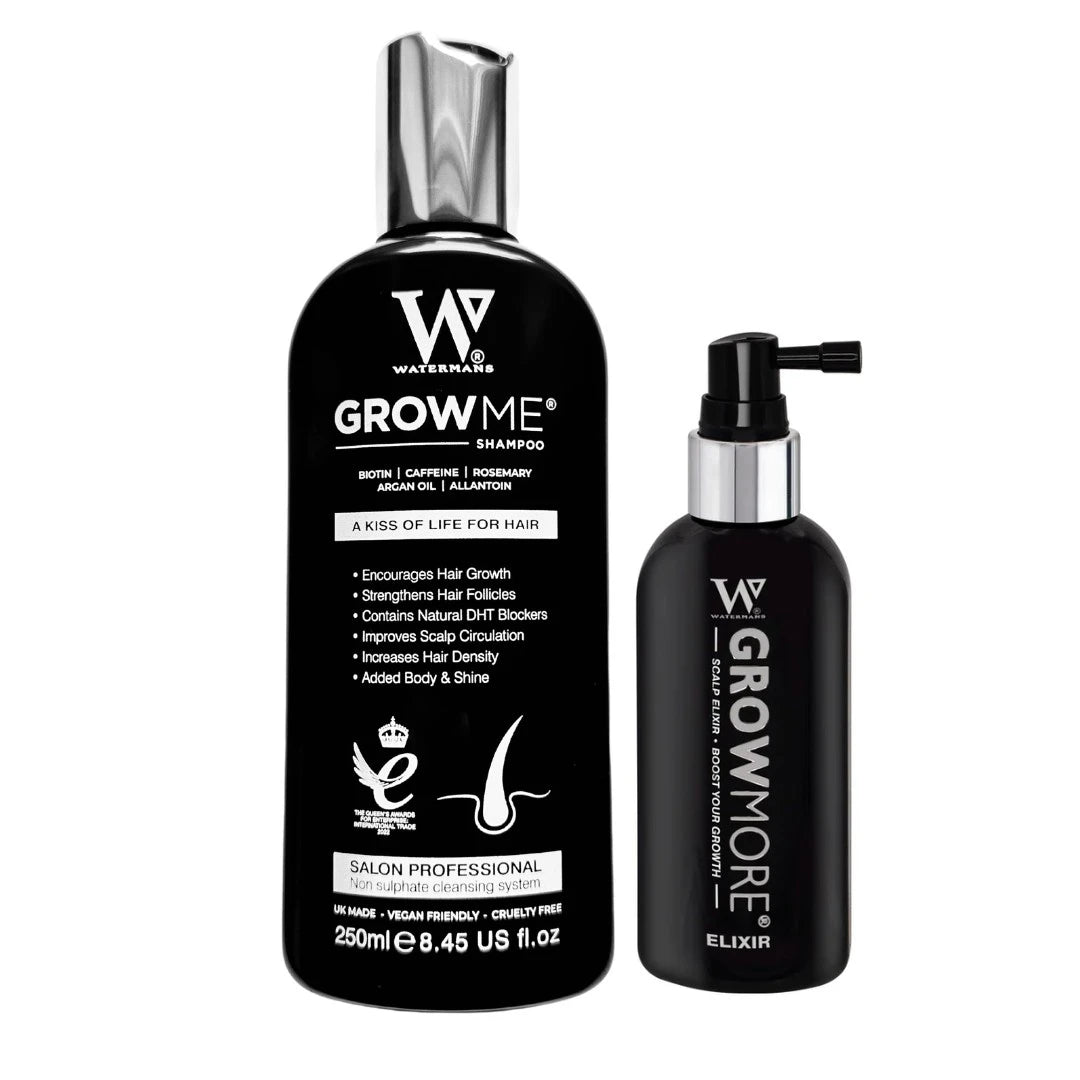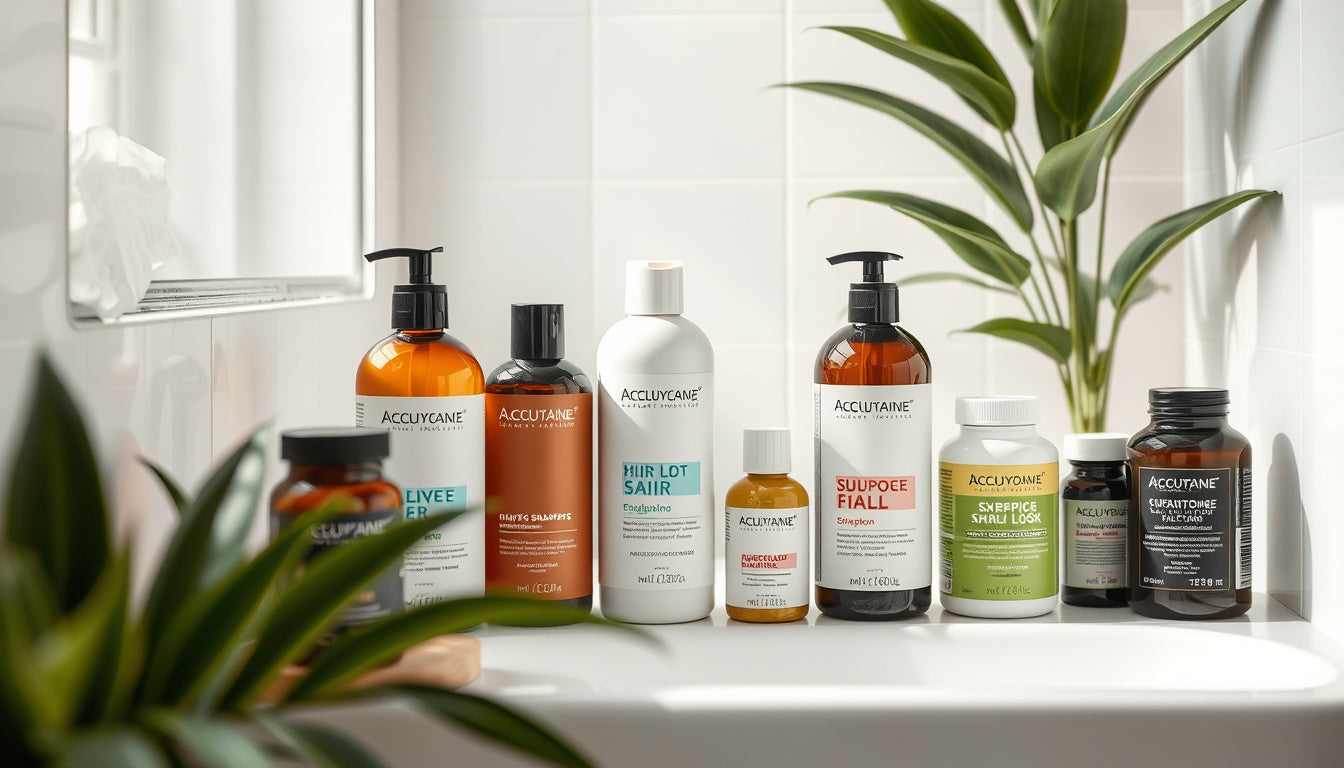
Top Tips to Prevent Hair Shedding: Keep Your Locks Luscious and Full!

Are you seeing more hair in your brush?
Do you spot strands on your shirts or in your shower drain?
Hair falls out every day. It is a normal act for all. Yet, heavy shedding may scare you.
Do not worry! In this guide, we show you how to stop hair loss and keep your hair full.
Before we start with tips, learn the basics of hair loss.
Your hair works with three steps:
• the growth step (anagen)
• the change step (catagen)
• the rest step (telogen) where hair falls out
Stress, hormone shifts, a poor diet, and some hairstyles may add to hair fall. With proper care, you can slow down hair loss.
1. Nourish Your Scalp
The Value of Scalp Care
Your scalp supports hair growth. Care for your scalp and hair. Just as a plant needs good soil, hair needs a healthy base to shine.
How to Nourish Your Scalp
-
Use a Mild Shampoo
Pick a shampoo that lacks sulfates and parabens. Try Watermans Grow Me Shampoo. It has natural parts like Biotin, Rosemary, and Argan Oil. It gives energy to your scalp and helps hair grow. -
Massage Your Scalp
Gently rub your scalp. Rub with your fingers or a small tool for a few minutes each day. This boosts blood flow to the hair.
2. Diet and Nutrition
Eat for Strong Hair
Your food helps your hair. A balanced plate can cut down on hair fall. What you eat goes straight to your hair.
Key Nutrients for Hair Growth
-
Protein
Hair is made of protein (keratin). Eat lean meats, eggs, beans, nuts, and milk to get enough protein. -
Omega-3 Fats
These fats feed your hair roots and give shine. Fish like salmon, nuts, and seeds provide these fats. -
Vitamins and Minerals
Fruits and veggies bring vitamins A, C, D, and E, which help hair care. Iron and zinc matter too. Try shellfish, spinach, and lentils.
3. Drink Enough Water
Water helps both your body and your hair. It brings food to your hair parts and keeps your scalp moist.
How Much Water to Drink
Aim for 8 small cups (64 ounces) of water a day. If you work hard or live in heat, you might need more. Listen to your body.
4. Cut Back on Heat Styling
Guard Your Hair from Warm Tools
Heat tools may hurt your hair. They can cause splits and more hair falling out. Use heat tools less often to let your hair rest.
Ways to Avoid Heat Damage
-
Air Dry Your Hair
Let your hair dry naturally. This keeps your hair moist and safe. -
Use a Heat Shield
When you need a heat tool, spray a heat shield first. It will help protect your hair.
5. Choose the Right Hair Products
The Role of What is in Your Products
Using the right products for your hair can help its health. Avoid harsh chemicals that wash away natural oils.
Product Ideas
As noted, Watermans Grow Me Shampoo is a good pick. It has parts like Caffeine, Niacinamide, and Allantoin. These help stop shedding and keep your hair full.
6. Regular Haircuts
Why Trimming Helps
Trimming hair may seem odd when you want longer hair. Yet, regular cuts remove split ends and breakage. This keeps your hair strong.
How Often to Trim
Trim your hair every 6 to 8 weeks. Even while you let your hair grow, a trim can make a big change.
7. Manage Stress
Stress and Hair Loss
Stress hurts the body. It can also harm your hair. High stress may disturb the hair cycle and add to shedding.
Ways to Calm Stress
-
Meditation and Mindfulness
Spend a few minutes in calm thought each day. This quiet time helps your mind and hair. -
Exercise
Simple exercise releases happy chemicals in your brain. This cuts down on worry.
8. Visit a Professional
When to Ask for Help
If you lose too much hair or see other odd signs, talk to a doctor or skin expert. They can spot any hidden issues and help you find the right fix.
Roots of Hair Loss
-
Hormone Shifts
Changes in hormones, like in thyroid issues or during life changes, may cause more hair fall. -
Health Problems
Scalp issues or other diseases may hurt your hair’s health.
Did You Know?
-
Hair Fall is Normal
Most people lose about 50 to 100 hairs each day. It depends on your body, food, and care. -
Hair Life Cycle
Each hair on your head has its own life. This journey can last from 2 to 6 years. -
Genetics at Work
Your genes can decide how your hair grows. A family history may mean you lose more hair. -
Seasonal Hair Fall
Some see more hair fall when seasons change, such as from summer to fall. -
Pregnancy and Hair
Pregnant women may see thicker hair due to body changes. After baby, hair may fall when hormones shift.
Q&A Section
Q: How can I know if my hair fall is normal?
A: Losing about 50-100 hairs a day is seen as normal. More hair than this may need care.
Q: Can I stop hair fall completely?
A: You can slow it down with care, but you cannot stop it all. It is a natural life process.
Q: Are there foods that help lower hair fall?
A: Yes. Foods with vitamins and protein, like eggs, vegetables, and nuts, help reduce hair fall.
Q: Is it safe to wash my hair every day?
A: Daily washing may wash away needed oils. Try washing 2-3 times weekly. This may change with your hair type.
Q: Can hormones change hair do?
A: Yes. Shifts in hormones, such as in pregnancy or life changes, can add to hair fall.
Remember, if you want a real way to help your hair grow and cut down on shedding, try Watermans Grow Me Shampoo. It uses a mix of good parts to give strength to your scalp and boost hair volume. It is a fine choice for strong, full hair.
For more details, visit Watermans Grow Me Shampoo and take your first step toward fuller hair today!













